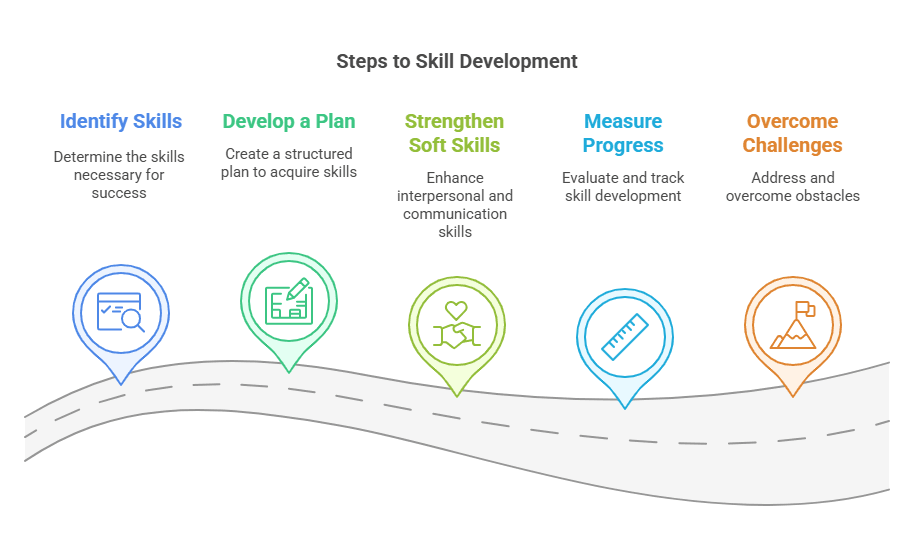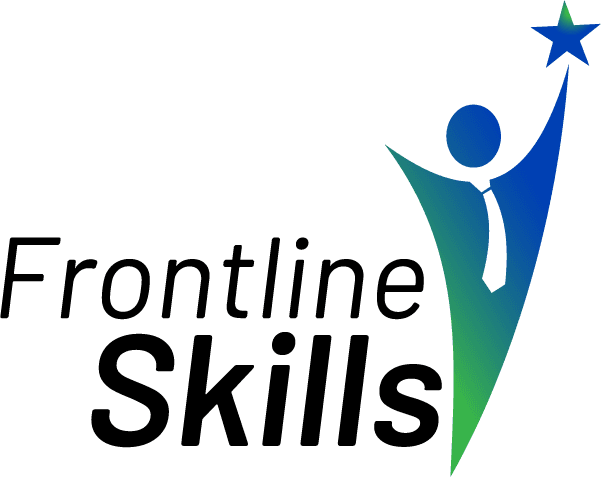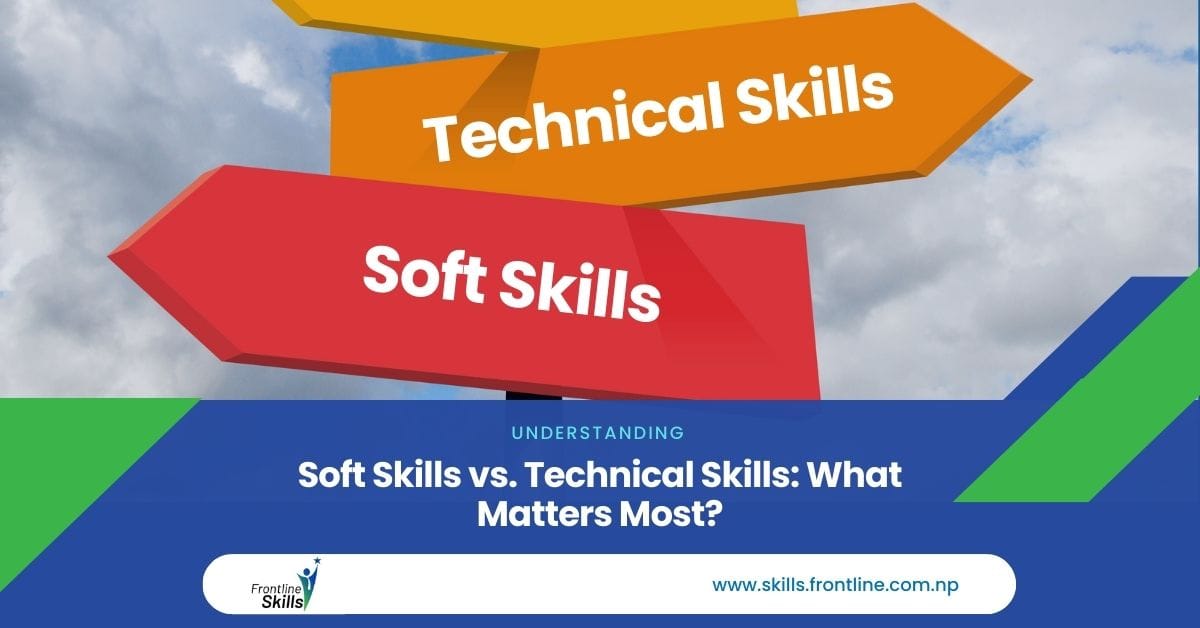Skills for Success
Success is a journey that requires intentionality, persistence, and the right set of skills. To achieve your goals, it’s essential to identify and cultivate the abilities that will propel you forward. This comprehensive guide will help you uncover the skills you need and provide actionable steps to develop them effectively.
Understanding the Importance of Skills for Success
Success in any field is directly linked to a combination of hard and soft skills. Hard skills are specific, teachable abilities, such as technical expertise, while soft skills include interpersonal abilities, communication, and emotional intelligence. Both are critical for achieving professional and personal milestones.

Step 1: Identify the Skills You Need
1. Analyze Your Goals
Start by defining your short-term and long-term goals. Whether it’s advancing in your career, starting a business, or excelling in a creative endeavor, understanding your objectives will help pinpoint the skills required.
- Break down your goals into smaller, actionable steps.
- Research the skills commonly associated with achieving these goals.
2. Research Industry Trends
Stay updated with the latest trends in your field. Industries evolve, and the skills that were relevant a decade ago may no longer be in demand.
- Use professional platforms like LinkedIn to explore the skills top performers in your industry possess.
- Attend webinars, workshops, and conferences to gain insights into emerging trends.
3. Conduct a Self-Assessment
Evaluate your current skill set. Be honest about your strengths and weaknesses to determine areas that need improvement.
- Use tools like SWOT analysis (Strengths, Weaknesses, Opportunities, Threats) to assess yourself.
- Seek feedback from mentors, colleagues, or supervisors for an objective perspective.
Step 2: Develop a Plan to Build Your Skills
1. Prioritize Key Skills
Not all skills are equally important. Focus on the ones that will have the most significant impact on your goals.
- Divide skills into categories: essential, secondary, and optional.
- Allocate time and resources to mastering essential skills first.
2. Leverage Online Learning Platforms
In the digital age, learning new skills has never been easier. Platforms like Coursera, Udemy, and Skillshare offer courses on a wide range of topics.
- Choose courses with high ratings and reviews.
- Dedicate specific hours each week to learning.
3. Gain Practical Experience
Theory is important, but practical application is what truly solidifies skills.
- Take on projects or volunteer opportunities that allow you to practice your new abilities.
- Internships and freelance work can provide real-world experience in a controlled environment.
4. Network with Experts
Surrounding yourself with skilled professionals can accelerate your learning process.
- Join industry-specific groups on social media platforms.
- Attend networking events to build relationships with experts who can guide you.
Step 3: Strengthen Soft Skills
While technical skills are essential, soft skills often determine how well you can apply your knowledge. Here’s how to enhance them:
1. Improve Communication Skills
Effective communication is the cornerstone of success.
- Practice active listening to understand others better.
- Engage in public speaking or join organizations like Toastmasters to boost confidence.
2. Build Emotional Intelligence
Understanding and managing emotions is crucial for personal and professional relationships.
- Practice empathy by putting yourself in others’ shoes.
- Learn to manage stress and stay calm under pressure.
3. Enhance Time Management
Time is a finite resource, and managing it well is key to achieving your goals.
- Use tools like calendars, to-do lists, and productivity apps to stay organized.
- Prioritize tasks based on urgency and importance.
Step 4: Measure Your Progress
1. Set Milestones
Break your learning journey into measurable milestones. This will help you track your progress and stay motivated.
- For example, aim to complete a specific course or achieve a certification within a set timeframe.
- Celebrate small wins to maintain momentum.
2. Seek Feedback
Regular feedback from peers, mentors, or supervisors can provide valuable insights into your development.
- Be open to constructive criticism.
- Use feedback to refine your approach and improve further.
3. Reassess and Adjust
Skills development is an ongoing process. Periodically reassess your goals and the skills you need to achieve them.
- Adapt to changes in your industry or personal circumstances.
- Stay flexible and be willing to learn new things.
Step 5: Overcome Challenges
1. Stay Motivated
Learning new skills can be challenging, but persistence is key.
- Set clear rewards for achieving milestones.
- Remind yourself of the bigger picture and why these skills are essential.
2. Manage Time Effectively
Balancing skill development with other responsibilities can be tough. Create a realistic schedule and stick to it.
3. Leverage Support Systems
Surround yourself with people who encourage and support your growth. Join communities of like-minded individuals who share similar goals.
Conclusion
Identifying and building the skills you need for success is a dynamic and rewarding journey. By analyzing your goals, prioritizing key abilities, and consistently working on both hard and soft skills, you can achieve remarkable growth in your personal and professional life. Stay committed to lifelong learning, and remember that every small step brings you closer to your aspirations.
171 views



